Alternate Visions - an opera (Chants Libres 2007)
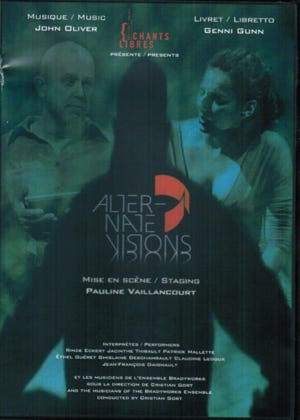
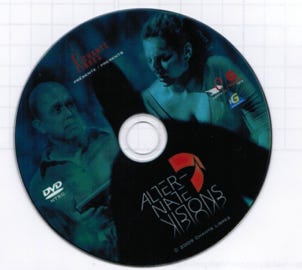
Synopsis
Alternate Visions, produced by Chants Libres, the lyric creation company, invites the audience to witness an alternate vision of love.This bilingual opera presentation is truly an encounter mediated by cyberspace. Taking the subject matter of computer dating as its focus,Alternate Visions addresses the internet's power to create personae and perfection. In a space where musical styles merge, real and virtual universes collide, robotics and intelligent skin mingle...what happens to human carnal relations?
Valerie and Richard develop a relationship over the Internet in a virtual 3D environment; they decide to break the ice of cyberspace and meet in person at a high-tech karaoke bar, which is in fact the set of Alternate Visions, a reality television show. At the last minute, they both get cold feet and ask their respective best friends to take their places. Why take the risk? Why change anything? Misunderstandings multiply ad infinitum, raising questions around the perception of reality and the culture of identity.
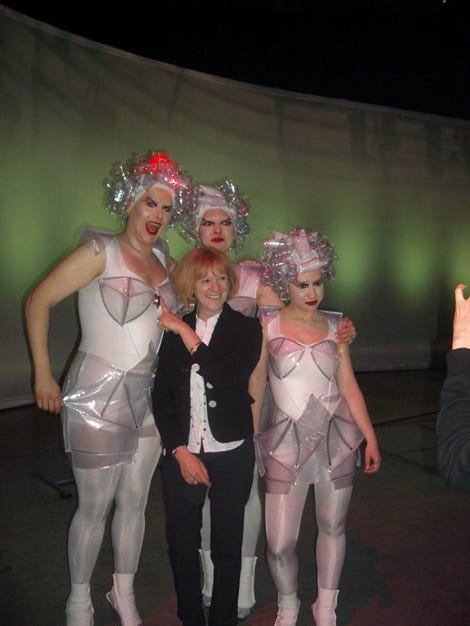

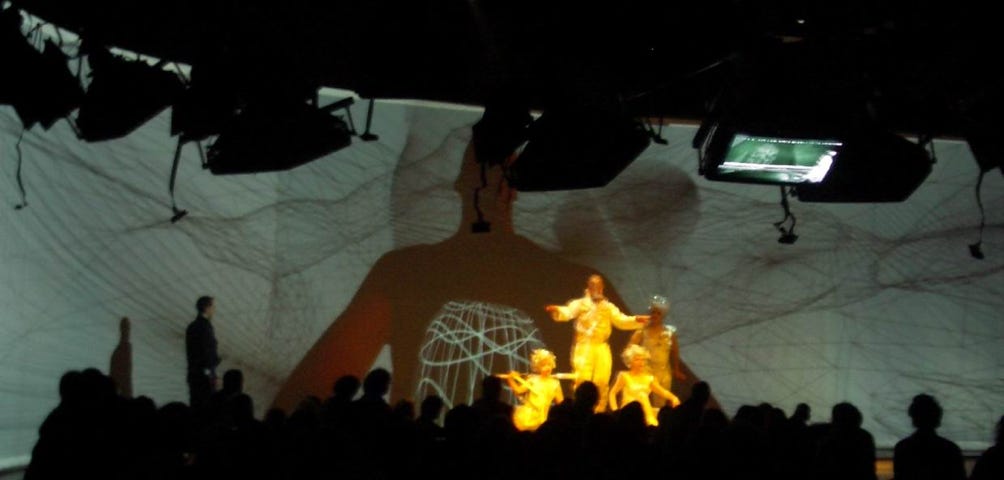
Selected Review Quotes
“Exploring intimate relationships through humour isn't new territory for Vancouver-based writer and translator Genni Gunn. In fact, she first penned Alternate Visions, a pungent take on love and alienation in a world gone VR - Virtual Reality - some 15 years ago. Perhaps the story of this new opera is fresh and biting because there's no pretence about it being a documentarist's take on the topic -- we're still in the realm of the fantastic."
--Globe & Mail
"Alternate Visions is . . . entertaining "augmented opera that sports the extra novelty of being in both English and French . . . Amused as we are by the techno-trappings, what makes the show watchable is the familiar spectacle of two people messing up a potentially fulfilling relationship..."
- Montreal Gazette
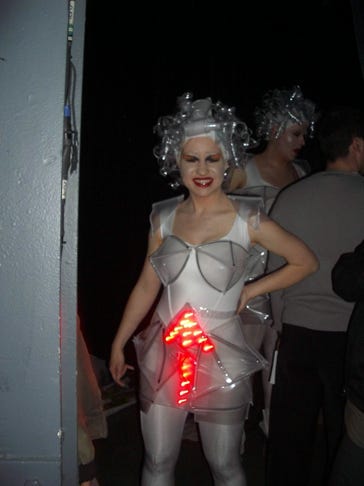
The Impetus Behind Alternate Visions
Alternate Visions emerged from my interest in exploring the intimacy and alienation present in our contemporary society.
Our wired connections provide a sense of intimacy — we can communicate with everyone globally; we can express ourselves daily in blogs and videos; our private lives can now be lived publicly through television reality shows, through 24-hour views into our spaces in front of our computers. We have become voyeurs, stationary creatures typing our emotions onto keyboards, looking into the cool eyes of digital cameras.
While all this appears to have us more connected to everyone, in reality we are more faceless and more alone than ever, our eyes reflecting blue screens, our selves flickering in darkened rooms. Technology has expanded our interaction with the world, yet it has also alienated us from human interaction at home. From this exploration into simulated intimacy, grew the protagonists of Alternate Visions, Alex and Valerie, two busy young professionals who meet online. Their interaction through technology intensifies until one of them suggests that they should meet face to face. Of course, this is much more difficult than it seems, because the two lovers have never embraced real intimacy.
— Genni Gunn
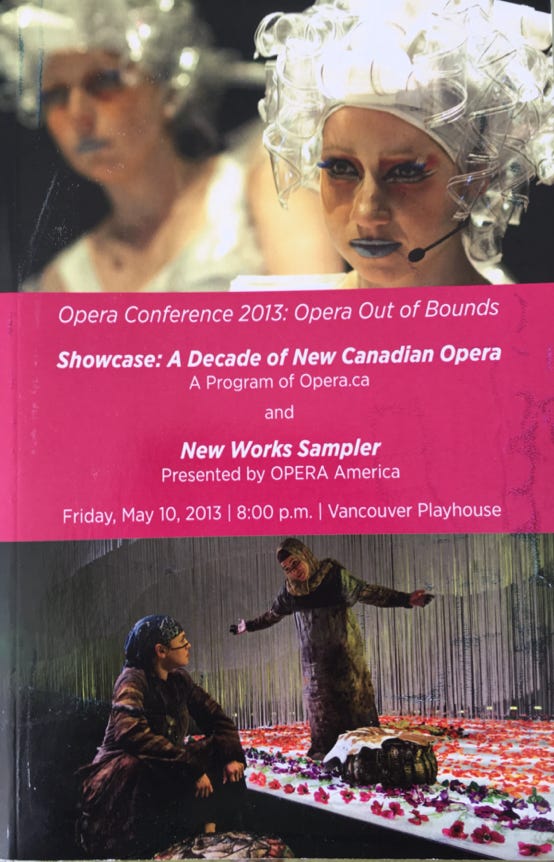
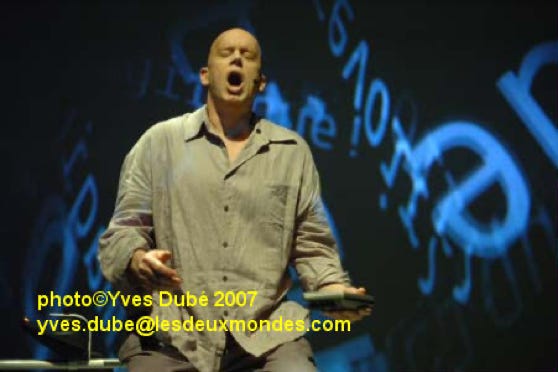
Word from the Composer
The internet is a place where anyone can tell their story, broadcast their idea, display themselves, reinvent themselves. It is a place where journalism, fact and fiction coexist and the concept of absolute truth is impossible. It is a place where the love of music is front and centre. William Benjamin observed the impact that the recorded medium had on memory and culture some fifty years ago. Now the recording, and techniques once reserved for studio producers, have become the musical instruments of our time, The history of recorded music seems imbedded in our collective memory. How many times do we hear a tune many years after the original release and still remember every change, every word? But if we are to hear it again, perhaps we can make it new by a remix! There is a joy to this constant rediscovery, recontextualisation and rebirth. At the age of 21, I had my own first experience of the power of popular culture when I decided that I should actually give the Rolling Stones a chance, and so I bought a two-LP set called "Hot Rocks" and sang along to every song, with complete knowledge of all the tunes and words. Popular music is "ear glue." It just sticks.
Tonight you are in a high-tech bar filled with images and sound. Our story begins with a blues tune, apparently sung in karaoke, but quickly sounds become multilayered, cut up, and our sonic identity dissolves into waves of different musics, each one offering a potential identity or style by which one could live. Does our culture then reject the monad of the single story and embrace the complexity? Or are there still some fundamental issues to deal with in this new, complex, and demanding playground?
© 2021 Genni Gunn